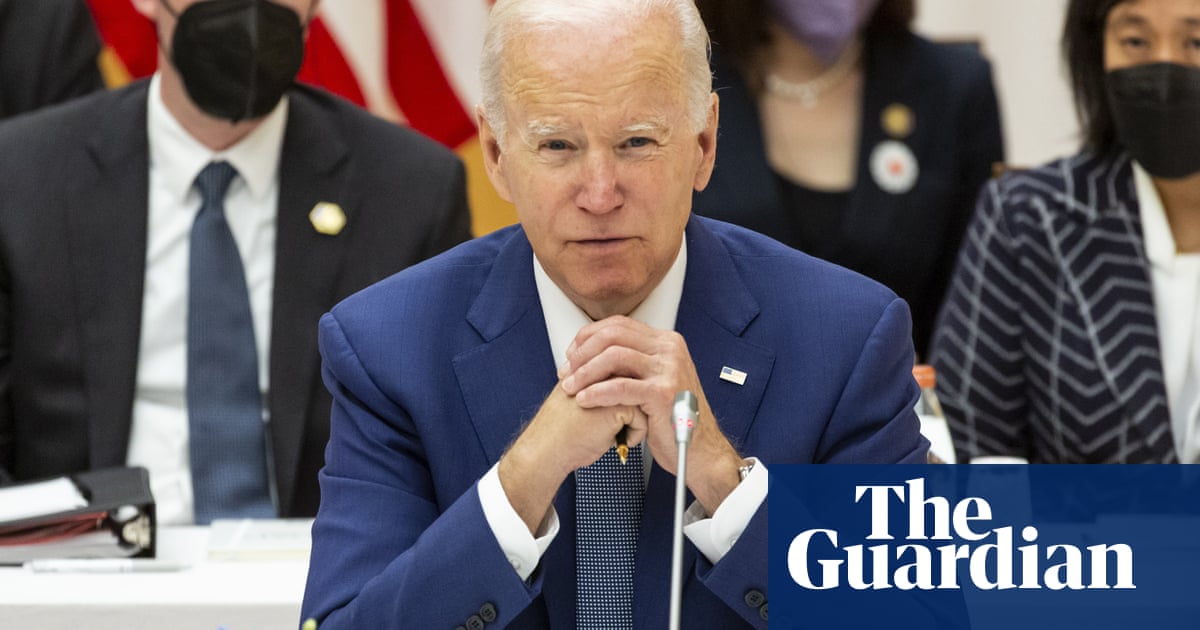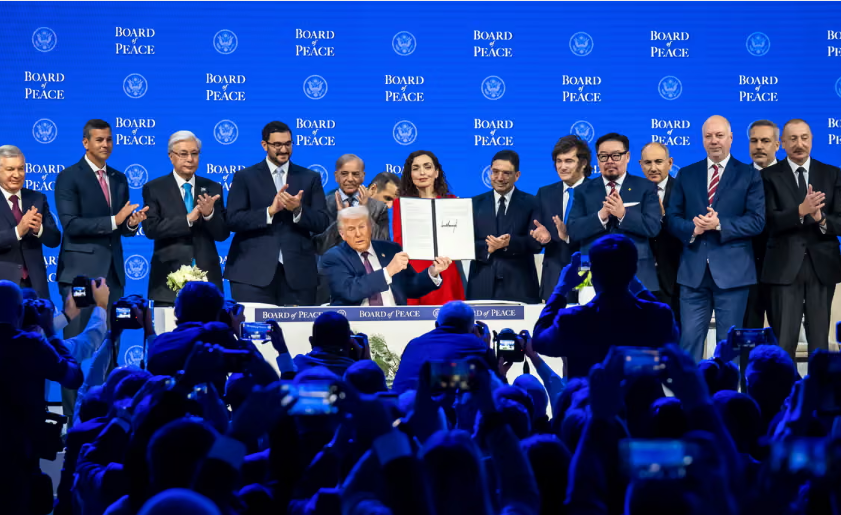Joe Biden: invasion of Ukraine shows need for free and open Indo-Pacific
The turmoil caused by Russia’s invasion of Ukraine has underlined the need for a free Indo-Pacific region, Joe Biden has said at a meeting with regional partners that Beijing has condemned as part of a US-led attempt to contain China.
Biden and the leaders of a loose alliance known as the Quad – India, Japan and Australia – reaffirmed their commitment to a “free and open” Indo-Pacific during talks in Tokyo on Tuesday. The comments came one day after the US president said Washington would be ready to intervene militarily to defend Taiwan, prompting China to accuse him of “playing with fire”.
Biden later appeared to attempt to play down his remarks, saying the US policy of “strategic ambiguity” on Taiwan remained unchanged, according to media reports.
Washington is required by law to provide Taiwan with weapons for self-defence, but under a decades-long policy of strategic ambiguity, it has never explicitly committed itself to intervening militarily to protect the island in the event of a Chinese attack – a stance that Biden appeared to have contradicted.
But on Tuesday, Biden, asked if there had been any change to the US policy on Taiwan, responded: “No.”
“The policy has not changed at all,” he said. “I stated that when I made my statement yesterday,” he said after a round of talks with his Quad colleagues.
The four leaders – Biden, Japan’s prime minister, Fumio Kishida, the Indian prime minister, Narendra Modi, and Australia’s new prime minister, Anthony Albanese – were eager to present a united front. But India’s refusal to condemn Russia’s invasion of Ukraine or impose sanctions forced the Quad to issue an ambiguous condemnation of the Kremlin.
Their joint statement a stopped short of explicit criticism of Russia’s actions in Ukraine, saying only that they opposed “all attempts to change the status quo by force, particularly in the Indo-Pacific”.
They also opposed “the militarisation of disputed features, the dangerous use of coastguard vessels and maritime militia and efforts to disrupt other countries’ offshore resource exploitation activities” – an apparent reference to Chinese activity in the South and East China Seas.
The statement avoided explicit condemnation of either China or Russia, despite Biden’s earlier warning that like-minded countries had to “make sure we deliver” in what he described as a battle of “democracies versus autocracies”.
With Modi sitting nearby, Biden said the leaders were “navigating through a dark hour in our shared history” due to Russia’s war on Ukraine. He added that it was “more than just a European issue, it’s a global issue”. Modi did not address it in his public remarks as the summit got under way.
The US strategy was for a “free, open, connected, secure and resilient Indo-Pacific”, Biden said. “Russia’s assault on Ukraine only heightens the importance of those goals, the fundamental principles of the international order.”
Kishida said the Russian invasion “shakes the foundation of international order” and was a direct challenge to the principles of the United Nations.
“We should not allow similar things to happen in the Indo-Pacific region,” he said.
While Japan and Australia have joined the US in condemning the Russian invasion and imposing sanctions, India, which buys most of its military hardware from Russia, has so far refused to do either.
The divisions over Russia highlight the political limits of the Quad, whose focus is on practical cooperation in areas such as coronavirus vaccines, infrastructure, climate change, space, cybersecurity and critical and emerging technologies.
China will have closely followed Tuesday’s summit, only the second in-person meeting since the Quad’s first formal summit last year.
China has described the Quad as an attempt to form an Asian version of Nato, although the four members have not agreed a mutual defence pact.
Quad members say the group is meant to deepen economic, diplomatic and military ties among the four countries. Biden said the grouping was of growing importance, calling it a “central” partnership. “In a short time, we’ve shown the Quad isn’t just a passing fad. We mean business,” he said.













